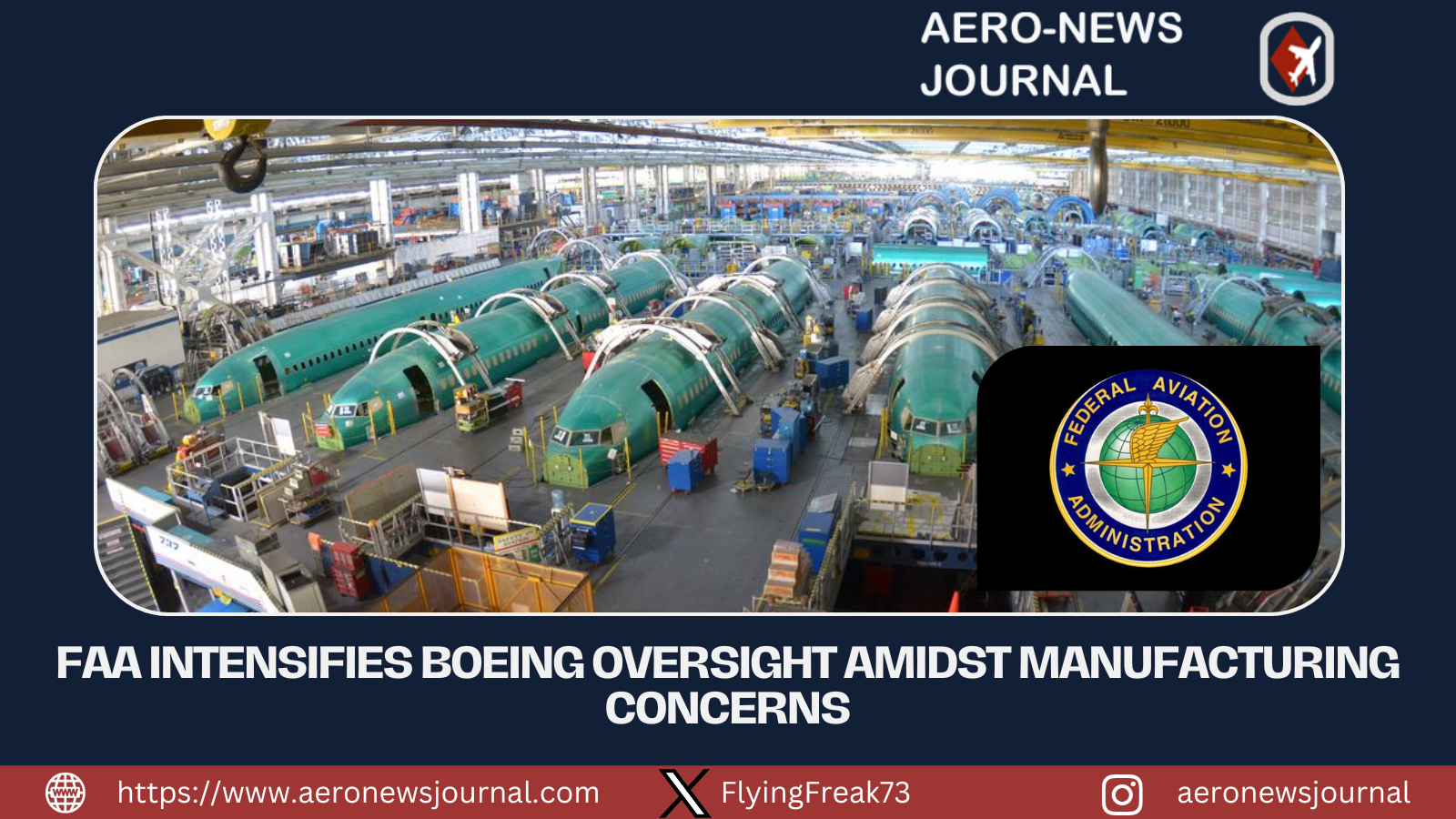
The U.S. Federal Aviation Administration (FAA) has announced plans to intensify its oversight of Boeing, the largest U.S. planemaker, following a series of manufacturing issues.
Increased Oversight
The FAA's decision comes after a panel broke off a new jet in mid-flight, leading to a dramatic emergency landing. The incident involved a Boeing 737 MAX 9 operated by Alaska Airlines, which had to make an emergency landing after a panel broke off, leaving a gaping hole in the fuselage. The FAA is set to conduct a new audit of the Boeing 737 MAX 9 production line and its suppliers. The results of this audit will determine whether additional audits are necessary.
.gif)
Manufacturing Issues
FAA's chief, Mike Whitaker, has acknowledged the existence of "other manufacturing problems" at Boeing¹. He noted that the new MAX 9 airplane that had the mid-air emergency had "significant problems" and pointed out Boeing's past history of production issues. Whitaker stated, "We know there are problems with manufacturing, there have been problems in the past. But these are continuing and the aircraft was three months old," referring to the Alaska airplane.
Impact on Airlines
The manufacturing issues have led to hundreds of flight cancellations by Alaska Airlines and United Airlines. The FAA grounded 171 airplane MAX 9 with the same configuration, while the National Transportation Safety Board (NTSB) is investigating if the MAX 9 was missing or had improperly tightened bolts.
Market Reaction
Boeing shares fell 1.5% in morning trading and are down nearly 12% since the incident. Confidence in Boeing has been shaken since a pair of MAX 9 crashes in 2018 and 2019 killed 346 people.
Boeing's Response
Boeing has not immediately commented on the FAA's latest move. On Thursday, the company said it would "cooperate fully and transparently with the FAA and the NTSB on their investigations". On Wednesday, CEO Dave Calhoun acknowledged on CNBC that there was a "quality" issue in allowing the MAX 9 to fly with the problem that caused the blowout.
Moving Forward
The FAA is considering shifting additional FAA responsibilities assigned to Boeing to an independent entity. "It is time to re-examine the delegation of authority and assess any associated safety risks," FAA Administrator Mike Whitaker said. The FAA is exploring the use of an independent third party to oversee Boeing’s inspections and its quality system. The safety of the flying public, not speed, will determine the timeline for returning the Boeing 737 9 MAX to service. As the FAA increases its oversight, the aviation industry will be watching closely to see how Boeing addresses these manufacturing issues.


